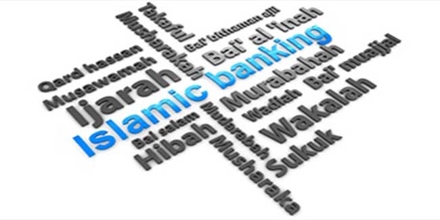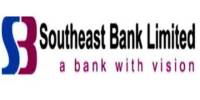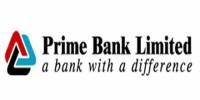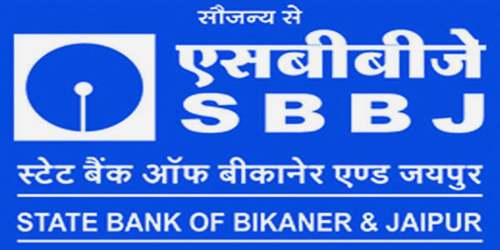Customers Preference towards Islamic Banking:
Religious Belief or Influence of Economic Factors
The purpose of this paper is to study the customer awareness and attitude towards choosing the Islamic Banking. In developing countries Islamic banking has gained an immense popularity and importance which has also led a growth in Islamic financial sector. This paper has mainly tried to identify the actual factors which influences the customers to choose Islamic banking rather than convention banking system. Whether the customers prefer Islamic banking because of religious beliefs or economic factors. A descriptive study has been carried out after analyzing few factors like Demographic Characteristics and Consumer Attitudes, Service attributes Religious belief.
This paper also indicates the opportunities and chances of Islamic banking to develop as a main stream banking system in the financial market. As our overall findings show that in developing countries there are greater opportunities for development and growth of Islamic financial system as the Muslim community is willing to take financial products and spend their lives according to Shariah. However Islamic Banking institutes still need to work hard for their endurance with conventional banking system.
Also a qualitative research has been conducted to observe and analyze the overall knowledge or awareness level of customers regarding Islamic banking system in Bangladesh. So ten in-depth interviews have been undertaken on issues related Islamic banking system. Then directed a thematic analysis depending on finding from the in-depth interviews and at end have come up with some recommendation and suggestions concerning Islamic banking.
The overall research findings suggest that in Bangladesh Islamic banking system has a great potential to grow as the customers have an attraction towards Islamic banking because of religious sentiments. Moreover, the Islamic banking organizations need to concern more about their service qualities and customer satisfactions.
Customers Preference towards Islamic Banking: Religious Belief or Influence of Economic Factors
Introduction
An Islamic Banking system refers such banking activities that are approved by Islamic Shariah. It is defined by OIC (Organization of Islamic Conference) as “a financial and social institution whose objectives and operations as well as principles and practices must conform to the principles of Islamic Shariah (Jurisprudence), and which must avoid the interest in any of its operations.” Or, “Islamic Banking Business means banking business whose aims and operations do not involve any element which is not approved by religion of Islam.” (Malaysia Islamic Banking Act, 1983).
Moreover, in Shariah law Riba is prohibited which eventually means avoidance of interest or usury. Therefore, the main difference between Islamic banking and conventional banking is the prohibition of interest or Riba and the banks are not even allowed to offer a fixed rate of return on deposits or to charge interest on loans (Chong & Lui, 2008).
Muslim world inherited the interest-based banking from their colonial interests. However it is rather unfortunate to observe that Muslim World, to a large extent, have failed to replace interest based banking system despite little involvement of the native elite during the colonial period.
However, in between 1945 to 1963, all Muslim majority country became independent and desire of the Muslim people to manage their respective economies as per their own values became prominent and Islamic financial movement came into being. Today Islamic Banking is the fastest growing segment of international financial sector and securing double digit growth every year.
Objective of the Study
The study pursues three major research objectives:
- Defining the factors that make Islamic banking prior to conventional banking among the target market.
- Identification of key factors that influence the customers of Bangladesh in choosing Islamic bank system.
iii. Determining the customers’ awareness regarding Islamic banking service in Bangladesh.
- Finding the potentials factors for Islamic banking system to grow and perform in the market.
- Finding the areas of Islamic banking which need attention to increase the customer satisfaction.
Methodology
Research Method
For the research study I have conducted qualitative research method as it helps to get more detailed, conceptual and immense ideas about the selected topic. It also provides a quality result regarding consumers’ perception and behavior. Also used different methods for collecting and analyzing data such as in-depth interviews and thematic analysis. For qualitative research I selected in-depth interview technique because it involves asking questions, systematic recording and documenting of responses for additional analysis. In-depth interviews occur with one individual at a time therefore it is more time saving and productive.
Data Sources
To make this report more relevant and reliable both primary and secondary sources of data has been used.
Primary Source:
- Undertaken In-depth Interview of individuals.
- Direct conversation with the clients during internship program.
iii. Observation and work experience with the bank officials.
Secondary Sources:
- Different brochures, circulars and reports of Islamic banks.
- Uncirculated data received from the Branch.
iii. Different journals, articles and publications on Islamic banking.
- Several Research Textbooks.
Data Collection Method
For this research report in-depth interview has been used as the main source of collecting primary data. I have undertaken ten in-depth interviews from individuals of different livings and professions. I have taken interviews of people who have bank accounts in conventional banking but have idea about Islamic banking system and also their relatives or friends have Islamic banking account. My intention was to talk with respondents to get the understanding their views regarding Islamic banking. To take the interview the respondents at first I took their appointments and met in a place where they felt comfortable to give interview. Then took their permission to record their voice during the interview session and took notes which help me to summarized and interpret the interviews for further analysis.
Analysis Method
For the analytical part thematic analysis method process have been used as it helps to develop themes within data. This method provides a rich description of data by sorting them into categories.
It also helps to get detail description of data. For paper I have developed four themes for analysis from the collected data. It helped me to get deeper appreciations of the content.
Literature Review
Islamic Banking:
Islamic banking is a banking system or banking activity that follows the principles of Sharia or the Islamic Law. In Islam, Sharia prohibits acceptance of specific interest or fees for loans of money which is known as Riba, whether the payment is fixed or floating. Also the investment in businesses that provide goods or services considered contrary to Islamic principles is entitled as Haram. So Islamic banking prohibits Riba or interest. It pays the investor profit-sharing dividends and offers borrowers fixed repayment rates and conventional interest rates are considered as Halal or legitimate by Islamic laws (Kelana & Lai, 1998). In the late 20th century a number of Islamic banks formed to apply these Shariah principles to private or semi-private commercial institutions within the Muslim community. Eventually Islamic banking directs the development of Islamic economics. Therefore ‘Sharia compliant finance’ is the more correct term of Islamic banking.
The first model of Islamic banking system came into picture in 1963 in Egypt. These banks were actually more than financial institutions rather than commercial banks as they pay or charge interest on transactions. By the end of 1970, several Islamic banking systems have been established throughout the Muslim world, including the first private commercial bank in Dubai(1975), the Bahrain Islamic bank(1979) and the Faisal Islamic bank of Sudan (1977).
Islamic banking offers the same facilities like to make money for the banking institute by lending out capital as conventional banking system except that it strictly follows the rules of Shariah or Fiqh al- Muamlat. Islamic banking provides banking services that adherence to Islamic law and ensure fair play to the customers. The Islamic law reflects the totality of Allah’ commands that regulate all aspects of a Muslim. Also the Islamic finance is directly involved with spiritual values and social justices. And under Islam there is no separation of mosque and state or of business and religion (Nicholas, 1994). As in Islam simply lending out money at interest is prohibited and therefore Islamic rules on transactions which is known as Fiqh al-Muamalat have been created to prevent these activities. However the basic principle of Islamic banking is based on risk-sharing which is a component of trade rather than risk-transfer which is seen in conventional banking. As a result Islamic banking introduces concepts such as profit sharing (Mudharabah), safekeeping (Wadiah), joint venture (Musharakah), cost plus (Murabahah), and leasing (EIjara).
However the Islamic commercial law is actually based on four basic principles. The first principle of Islamic business is based on profit and loss sharing and the second one is based on fixed service fees and charges and the third is based on free of cost and no charges. The other principles are changing with the situation of the business and its operation (Bellalah & Ellouz, 2004). The main and important models of Islamic banking system are as follows:
- Mudharabah is a vebture capital that fund an entrepreneur who provides labor while the bank provide finance so that both profit and risk are shared. Such participatory arrangements between capital and labor reflect the Islamic view that the borrower must not bear all the risk or cost of a failure. As a result it brings balanced distribution of income and not allowing the lender to monopolize the economy.
- EIjara wa EIqtina is similar to real estate leasing. Islamic banks handle loans for vehicles in a similar way like selling the vehicle at a higher-than-market price to the debtor and then retaining ownership of the vehicle until the loan is paid.
- Musharakah is a joint enterprise or partnership structure with profit and loss sharing instead of interest-bearing loans. It allows each party to involve in a business to share in the profits and risks. Instead of charging interest as a creditor, the financier will achieve a return in the form of a portion of the actual profits earned, according to a predetermined ratio.
- Murabahah is the sale on the profit which is mutually agreed by both parties. It is actually a request which is set by the client to the Islamic bank to leverage certain services or goods for him and in return, the bank provides a definite profit to the client over the cost of the services or goods.
- Wadiah is safekeeping of a deposit. A bank is deemed as a keeper and trustee of funds. A person deposits funds in the bank and the bank guarantees refund of the entire amount of the deposit, or any part of the outstanding amount, when the depositor demands it.
Western Banking:
Western banking practices promoted commercial and industrial growth by providing a safe and convenient means of payment and a money supply more responsive to commercial needs, as well as by “discounting” business debt. By the end of the 17th century, banking was also becoming important for the funding requirements of the combative European states. The basis of western banking or convention banking is the practice of interest. It provides the depositors with a return of a predetermined rate known as interest rate on the amount deposit irrespective of the utility of the concerned deposit or fund. Thus conventional bank offers its depositors a fixed return on predetermined rate or percentage of the deposit. Such a return is called Interest.
However, the both banking system has the same objectives but differs in executive philosophies. But now also the Western banks are responding to the demands of many Muslim clients by incorporating and offering Shariah-compliant services. By the same token, Islamic banking is influenced by Western banking.
Islamic Banking: Bangladeshi Scenario
Bangladesh started its banking business in 1971 with 15 banks along with their 1160 branches. Among these 15 Banks only 2 were Bangladeshi, 10 were Pakistani and 3 were other Foreign Banks but on 26th March 1972, all of these Banks were nationalized into 6 states owned Banks.
Moreover, by June 1972, Branches of these banks increased up to 1620. However, Bangladesh entered the Islamic Banking only in 1983, with the establishment of Islamic Bank Bangladesh. Then 5 more private Islamic Banks started their journey.
Though Islamic Banking started its journey after a decade of independence of the country, but still is maintaining a balanced growth in the country representing 18.5 percent of deposits and 19.7 percent of the advances of the Banking system of Bangladesh in 2010.
In Bangladesh, the Islamic banks started their journey with very limited resources. But gradually they have showed strong performance in respect of forming deposits as well as in investments. Also the role of Bangladesh Bank in regulating and supervising the Islamic Banks in accordance with Shariah law is at the preliminary stage. Gradually, Islamic finance is gaining immense popularity in Bangladesh and the experts believe that the Shariah compliant industry will continue in steady steps to become the mainstream banking system in Muslim South Asian nation. As the future of the Islamic banking system is very bright (Mominul Islam Patwary, 2010).
Demographic Characteristics and Consumer Attitudes
After Christianity, Islam is the second largest religion in the world and there are approximately about 1.8 billion Muslims. Even in the Middle East and parts of Asia, Africa and in countries such as Turkey, Iran, Iraq, Egypt, Nigeria, Indonesia, India, Pakistan and Bangladesh Islam is the predominant religion. In Iran, Pakistan and Sudan only Islamic banking is allowed (Chong & Lui, 2008). Apart from these areas, there are migrant Muslims all over the world, including South Africa and the United States of America. Owing to the presence of Muslims, international banks such as Citibank have created wings to cater for Muslim clients, offering diverse products, mainly financing business (Citibank, 2009).
At present there are more than 180 Islamic banks and financial institutions operating more than 8000 branches in different countries in Asia, Africa, the Middle East, Europe and North America. Earlier in 2010, it was expected that Islamic Banks and financial institutions would be able to comprise 50 percent to 60 percent of the total private savings of Muslims worldwide (Gainor, 1999).
Religious Belief or Influence of Economical Factor
According to the Islamic laws Islamic consumers are allowed to utilize the recourses available on earth and without being luxurious as Islam doesn’t appraise luxurious or lavish life style. Therefore Islamic consumers prefer Islamic banking rather than conventional banking. Although in an empirical study it was found that the motive in choosing an Islamic bank as a depository institute is not religious purpose but profit (Erol & El-Bdour, 1989). However, the existence of Islamic banks new branch is not such important consideration for the improvement of service. Moreover, peer group influences consumer’s decision to choose an Islamic bank and also the consumer’s awareness to obtain profit from profit and loss sharing investment and income redistribution role of Islamic banking system. Again in another study on consumer’s decision to choose Islamic or conventional banking, stated that consumers prefer Islamic banking because of its brand value, privacy and quality of service (Erol, Kaynak, & El-Bdour, 1990).
Recommendation:
So it can be concluded that consumers are also driven by the economical factor means profit in terms of choosing Islamic banking. Therefore the main attitude in choosing Islamic banking by Muslims and non-Muslims are not significantly different. As they both consider the factors like efficient service, secrecy, reputation, brand value etc. (Gerrad & Cunningham, 1997). However we can say that consumers choose Islamic banking because of economic factors which brings profit at the end of the day. Also the factors which motivate customers to choose Islamic banking are mainly the banks reputation, religious sentiments and the perception that Islamic banking is offering facilities equal to conventional banking but applying Islamic principles and it has the ability to take care of secrecy and profit as well (Naser, Jamal, & Al-Khatib 1999). Also the factors that motivate consumers to choose both Islamic and conventional banking system are to diversify the investment and the limitation of Islamic banking branches and service time. On the end it can be said that the consumers choose Islamic banking not only because of religious factors but also for economic factors and profit.
Service Attributes and Customer Satisfaction
Banking industry is one of those industries which attached with the satisfaction of customers. Moreover the future of banking is mainly dependable on its customers and their preferences. Also the consumers’ behavior is influenced by factors like- cultural, social and personal as well as psychological factors (Philips Kotler, 1994). Therefore their preferences should be the main center of attention because the customers’ living style involves different kind of needs which the banks have to match (Eriksson, 2008). Also in today’s competitive environment, it is very important that the bank managers should develop the ability to determine the critical bank selection factors for the segments of the market they wish to attract and serve (Har & Ta, 2000). So in this scenario the products and services offered by the Islamic banking system will have to compete with the products offered by the conventional banking and also among the products offered by the Islamic banking itself.
Moreover several studies on service quality show that the overall quality of products and services are the function of both the service providers and the perception customers about different dimensions (Zenithaml & Bitner, 2000).
The improvement of Islamic banking has really encouraged the potential benefits of its services for the consumers. Therefore, it would be imperative for the Islamic banks to know more about their clients who use Islamic banking services in order to satisfy their banking needs and Shariah.
However in the recent time western attitudes are also changing like along with Muslims, nonMuslims are as well refusing to invest in companies which are engaged in unethical and socially harmful activities (Warde, 2000). Consumers more are considering ‘Ethical’ banking these days.
Moreover, a wide religious reinterpretation and support from national as well as global levels can be seen. The political, social and cultural values embedded within the development goals of projects shape the development and use of technology (Madon, 2000).
Recommendation:
As a consequence of this solid competition the Islamic banking will have consider several criteria like brand value, reputation, service quality, speed of transaction, channel of delivery system, banking convenience and product diversity not only to attract Muslims but also the non-Muslims. However more studies are needed regarding this sector to create inclusive reference for Islamic banks to know their customers and their preferences on the basis of their demographic characteristic. So the banks should consider the demographic factors regarding the acceptance and usage of Islamic banking services (Jamshidi & Rezaei, 2012). It will enhance the Islamic banks system and will also improve their banking services and facilities on the basis of their segmentation. It will eventually lead Islamic banking services to be the general Islamic banking system.
Findings
Interpretation of In-depth Interviews
The purpose of this research study is to identify the influencing factors which generates demand among the customers for Islamic banking in the financial market. So for analyzing I have conducted in-depth interview of people from different walks and living. However they are not directly practicing Islamic banking but have knowledge about this banking system and there family members have Islamic banking accounts.
The interpretations of the in-depth interviews are following below:
1) Lutfur Rahman is an Administrative Officer at Dhaka City Corporation and he have bank accounts in One Bank Limited and Sonali Bank Limited. He said that his religious believes motivates him to follow Islamic banking system but in Bangladesh this banking system has not popularized yet. He also said that people do invest in Islamic banks but when they don’t get their profit share they withdraw their money and invest in conventional banking. He also added that sometime people invest both in Conventional and Islamic banking which related to their personal benefits. Also there is lack of awareness in customer about Islamic banking so the banks should provide correct information to the customers about their product and services. Therefore he believes in Bangladesh people prefer in Islamic banking more for economical purpose rather than religious sentiments.
2) Md. Tamzidul Islam is a Senior Lecturer of Marketing department in Brac University. He have a salary account in Brac Bank Limited. Though he practice conventional banking but by principles he refer Islamic banking. He says the way Islamic banking is practicing in Bangladesh is not aligned with the principles of Islam. Like in Shariah law interest is prohibited but in Bangladesh Islamic banks are providing a fixed rate to the customers in name of Mudaraba, Musharaka etc. therefore the fundamentals of Islamic banking and conventional banking are same which eventually Haram in Islam. He also said that the Islamic banks should deal with the perceptions and try to convince target customers in the market. As in Bangladesh more than 90 percent population is Muslim and they are very sensitive about their religious belief. So there is huge market for Islamic banking and the banks should really follow the Shariah laws to convince the customers to get their confidences towards their offering product and services.
3) Nazmul Hasan is a MBA student in Independent University, Bangladesh. He have bank accounts in Jamuna Bank Limited and Dutch Bangla bank Limited. As a Muslim he has keen interest in Islamic banking as they follows Shariah laws and does not provide interest rather than share percentage of profit from the investment. He also said as customer he would really consider the brand value and service quality factor in terms of choosing Islamic banking services. As there are lots speculation regarding the investment policies of Islamic banks. Customers do concern about their invested money and want transparency whether or not the money is investing for welfare of Islamic organizations. He recommended that the Islamic banks should bring more transparency in their investment policies and share it with their customers.
4) Adiba Arshi is working in Robi Axiata Limited as a Customer Experience and have a bank account in Estern Bank Limited. She prefer Islamic banking only because of religious view rather than taking it from economical way. She believes if she invest in Islamic banks then it would support different Islamic foundations and organizations. Therefore it would radically improve the Islamic economy in Bangladesh. She also shared that though she investing in conventional banking but have no clear idea where her money is being investing. She also prefer good quality service and brand name in terms of choosing Islamic banks. She also added that the Islamic banks should improve their services quality to attract more customers as the Islamic banking system is getting popular among the Muslims.
5) Zubayda Nazneen is an intern in Trust Bank Limited. She do regular conventional banking and have an account in Dutch Bangla Bank Limited. Though she does not involved in Islamic banking but as a Muslim she prefer Islamic banking. In future she would like to have an Islamic banking account for FDR or other banking schemes. As Islamic Banking follows Shariah law or zero interest policy. as a Muslim she prefer Islamic banking from religious perceptive but she also said that she had strong peer group influence. As in her family many relative follow Islamic banking. Even her mother have a FDR in Islamic bank.
She also prefer the brand value and service qualities of the Islamic banks. She is really want good service quality from the banks. She also thinks nowadays Islamic Banking system has a huge demand in market as people want to invest in a sector or invest which follows Shariah laws. She also believes Islamic banking will help to reduce the class differences and will equalize the income level of people. She said rich people should invest in Islamic Banking to bring an equalization in the society. Generally she believes Islamic banking would be helpful for both social and economic area. She is also concern about the investments that both conventional and Islamic banking makes in the market. As the investment should be made in Halal way. Overall Zubayda believes Muslim customers choose Islamic banking more from religious perspective rather than from economical concern.
6) Jannatul Mona is an intern of City Bank limited. She have a regular conventional bank account in City Bank Limited but have a preference for Islamic banking. She prefers Islamic banking only because of religious view rather than considering it from economical perspective. She says as a Muslim she should follow Islamic banking as it follows Shariah law and does not provide interest which is Haram in Islam. She does not have any peer group influence in case of choosing Islamic banking as her many near and dear one believes investing in Islamic bonks would nonprofit venture. But she really prefer good brand value and services quality in terms of choosing Islamic banking. As she says in Bangladesh the banks which provides Islamic banking along with the conventional banking have very little idea about their product offerings. She also say as the Islamic banking services is a complex procedure compare to the conventional banking system. That’s why the banks feel more reluctant to provide good service to the Islamic banking customer. Overall Jannat prefer Islamic banking because of strong religious.
7) Nusrat Sharmin Anika is an intern in GlaxoSmithKline (GSK). She have an account in trust Bank Limited. Though she practice conventional banking but she prefer Islamic banking more because of her religious perspectives. She says as in Islam interest or Riba is haram so the Muslim customers should really follow Islamic banking. She also says that brand value of the Islamic banks really influence the customers because they want good quality services. However people are less aware about Islamic banking in Bangladesh so the banks should promote more their Islamic banking services. They should also be more reflective about their investments and depository policies.
8) Naushin Zabin Antara is a BBA final year student in Brac University. Though she follow convention banking and have an account in Bank Asia but she prefer Islamic banking because of Religious beliefs. But have doubt about their banking activities and banking polices. She shared that as a customer she does not have any idea where her money will be invested and it is relevant for both Islamic and conventional banking system. However she complains that the banks which are providing Islamic banking services along with the conventional banking doesn’t give much preference to the Islamic Banking services because of its complex procedures. She recommends that if the Islamic banks want to operate their business as strongly as conventional banking than they should provide transparency to their customers about their activities and make customer understand difference between conventional and Islamic banking system.
9) Rafia Tahsin is a Final year student of Brac University and have a savings account in Prime Bank Limited. But as a Muslim she promote Islamic banking. She said that her family members have Islamic bank accounts and support Islamic banking system. She believes that investing in Islamic banks can boost up the Islamic economy. She also added that in Bangladesh people are less aware about the services that Islamic banks are providing. There is lack of promotion of Islamic banking services. Banks should involve themselves more to convince and encourage Muslim customers.
10) Shipra Parveen is a BBA student in NorthSouth University. She have a savings account in Dutch Bangla Bank Limited. Though she does conventional banking but she really prefer Islamic banking. She backs Islamic banking because of religious perspective. She believes as Muslim people should follow Islamic banking and she also have a peer group influence from her family. As her family members follow Islamic banking. She says as nowadays Islamic banking is getting popular among people and the banks also focusing on their Islamic banking offers along with the convention banking. Even the banks are also investing in the sector which would be more profitable for the Islamic economics. She appreciate Islamic banking more for the idea about sharing the profit of the customers’ investment rather than giving interest. She also believes if make investment in Islamic banking then it will not be invested in unethical or socially harmful activities.
Analysis
Customer Awareness or Religious Sentiments
There is a general anticipation that religious sentiments have a significant influence for consumers in selecting Islamic banking. Also in the study almost every respondents agreed that they prefer Islamic banking because of religious views. They also consider this system moral and more ethical than conventional banking. Many participants said that Islamic banking encourage the equal distribution of wealth between the individual and society. In case of selecting Islamic banking religion is an important factor (Ahmad & Haron, 2002). Though the research shows that the most of the bank employees and customers of Islamic banking does not have clear idea about the fundamentals of Islamic financial system. They only know it is a Halal banking system that promotes the halal investment in the society and also develop friendly environment within the communities. Around 63% of the Muslims completely or moderately understand difference between conventional and Islamic banking and the rest believe religion is the only intention behind choosing Islamic banking (Haron, Ahamad & Planisek, 1992). However the Muslims are aware of the fundamental terms in Islam but they are unaware the meaning of Islamic financial terms like Mudharabah, Wadiah, Musharakah, Murabahah, EIjara (Gerrad & Cunningham, 1997).
Recommendation by Relatives and Friends
Some participants feels that relatives and friends advices or encouragements has little or no influence on their banking decision-making process. Mainly family members’ involvement in Islamic banking actually aspires them to think about Islamic banking. Moreover the advices of family members, friends and neighbors has a stronger influence on customers’ decisions, compared with other variables in selecting financial institutions (Tan & Chua, 1986). However some participants prefer to act independently to choose their banking services depended more on their knowledge and understanding rather than relying on the recommendation of others. However it is the consumers’ choice to select their own banks which can in satisfy their financial needs. The understanding and adapting to customer motivation and behavior is not an option but an absolute necessity for competitive survival (Mclver & Naylor, 1986). Also the banks aggressively advertise their promotions via media such as television, newspaper, magazines, etc. Therefore the influence of word of mouth is less important for a customer as they can also easily get in touch with the said advertisement.
Abundance of Islamic Economy
Participants have related the Islamic banking system directly with the welfare of Islamic economy. They says that Islamic economic system is evolving as a reliable alternative to the interest based banking system. As we know the Islamic economic and financial system prohibits interest and all the transactions which involve interest. Therefore the Islamic banking system follows the principal of Islamic Sharia and implement the Islamic principals in their banking system to make their transitions free of interest or Riba (Gait & Worthington, 2007). The participants’ believes the involvement of the Islamic banks in Halal businesses will improve the efficiency of capital allocation. Eventually the banks will become more concerned about the productivity of a project in which it shares losses and profits. Therefore a better allocation of the available funds can be achieved. They also feels that Islamic banking system can serve proper justice to depositors and reduce income discrepancy in the society. Also this socio-economic aspect of Islamic banking can help to create more job opportunities. And gradually different communities around the world have also realized the fact that the interest based banking system has many flaws which have very serious and destructive consequences in the economy (Erol & Bdour, 1989). The participants demands more transparency regarding the investments polices of Islamic banks. They want to know whether or not their money is actually investing in Halal or ethical business. Also, the Islamic banks need expertise and trained manpower to value, monitor, evaluate and audit the projects which are required to finance.
Brand Value Ensures Customer Satisfaction
Almost every participants expressed that brand value and reputation of Islamic banks actually influence them or their family members to practice Islamic Banking system. In reality the customer satisfaction and quality service effects the customers’ decision to choose Islamic banking.
Customer satisfaction is the feeling or attitude of a consumer toward a product or service after it has been used (Metawa & Almossawi, 1998; Wells & Prensky, 1996).Therefore the non-religious factors like service efficiency, transaction speed and cooperativeness of bank or bank personnel are essentials factors in terms of favoring Islamic banking system. Participants also believe reputed banks provide quality services to their customer and satisfy their financial requirements. The financial reputation and quality service are the key factors affects customer decision to select banks (Gerrard & Cunningham, 1997). Again only 65% of corporate banking customers have very limited knowledge about Islamic banking (Ahmad & Haron, 2002). Therefore the Islamic banks and the conventional banks provide Islamic banking serveries need to put more efforts to promote the Islamic banking services and create awareness among target customers about their offering products and services. The participants also considers good social responsibility practices, convenience and product price as other important factors. Therefore Islamism banks don’t really rely on religious factors. Both religious and non-religious factors are significant in selecting Islamic banking.
Recommendations
Day by day banks are becoming very competitive regarding product differentiations, product offering, availably of services and technologies. Customers are selecting banks considering various features of the service proposition. Though the Islamic banking system is emerging and rapidly growing in the global economies but for long term survival they will have to pay more attention to the quality of services they offer to their clients. So for sustention and development of Islamic banking recommending some suggestion after overall analysis. The recommendations may be-
- Islamic Banks have to better understand the needs, preferences and behavior of their target group customers in order to stay in the competitive market. Banks should provide efficient services with high confidentiality to attract more customers and exceed their competitors.
- Islamic banks must use an effective media to publicize their activities. They need aggressive marketing strategy to promote their products and services among customers.
- Islamic banking institutes should conduct awareness sessions to improve the knowledge of the customers about the products of Islamic banks and the difference from the conventional banking products and their long term benefits.
- Islamic banks should adapt to the rapid changes in technology and introduce modern technology in its operations to redesign the management and decision-making structures.
- Islamic banks need to institute professionalism in their banking practice to enhance management capacity by competent bankers committed to their profession. As bank personnel must have a better understanding of industry, technology and the management of the business venture they entrust to their clients.
- Moreover proper training and workshops are necessary for Islamic banking professionals on Islamic banking and finance. Also the established Islamic Banks should co-operate by lending competent officials in setting up new Islamic Banks.
- Islamic banks should allocate a reasonable portion of their investible fundsto social priority sectors such as agriculture, poultry and fishery, small and cottage industries and export-led industries such as garments, shrimp cultivation, etc.
Conclusions
The overall study suggests that people have a positive attitude and awareness towards Islamic banking and it is growing in the financial market. There are many factors which are contributing to this growth. But the religious belief is the most driven factor besides choosing Islamic banking system. Therefore people are adopting Islamic banking mainly because of Islamic laws and principles. However the other factors like Islamic economy, social group influence etc. also have definite contribution in the growth of Islamic banking but less than religious factors.
Therefore the findings of this research paper shows that Islamic banks should consider the demand, preferences and behavior of their target customers to survive in the competitive market. Also immense public awareness needed to maintain the steady growth of Islamic banking. So they should develop appropriate marketing strategies in order to attract and retain customer in the competitive bank environment.
















